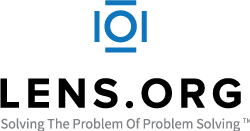Sila Kelima Pancasila Sebagai Landasan Penegakan Hukum: Upaya Membangun Sistem Perdagangan Yang Adil dan Berkelanjutan
DOI:
https://doi.org/10.58878/sutasoma.v3i1.335Keywords:
keadilan sosial, penegakan hukum, pasar gelap, sila kelima pancasilaAbstract
The increasing popularity of affordable products has led to high demand among many people, including branded goods, electronic devices and others that are easily purchased through illegal market distributors. Various types of products sold at lower prices, but with “big” brands are common on the black market, but consumers are often unaware of the dangerous consequences of purchasing illegal products. Therefore, it is important to have equal implementation of the law in accordance with the fifth principle of Pancasila. The purpose of this study was to determine the understanding and appreciation of the community, especially from the perspective of Generation Z and the general public, towards justice in the application of laws related to the black market in Indonesia. The research approach used was qualitative descriptive through interviews with 11 participants. The research findings show that the application of justice in law enforcement in Indonesia is still lacking. Most participants gave negative opinions regarding the law enforcement system related to the black market, arguing that law enforcement has not been implemented optimally and is often unfair, especially in relation to major violators who often avoid punishment. This analysis confirms that the application of the law in handling the black market does not fully represent the principle of social justice required by Pancasila.
Downloads
Published
How to Cite
Issue
Section
License
Copyright (c) 2024 Kalya Sukma Ramadhani, Salsabila Shafwah, Lovita, Widya Artha, Adrian Hartanto, Raja Oloan Tumanggor

This work is licensed under a Creative Commons Attribution-NonCommercial-ShareAlike 4.0 International License.
Authors who publish their manuscripts in Jurnal Sutasoma agree to the following terms:
1. Copyright Ownership Authors retain the copyright to their work. Authors grant Jurnal Sutasoma the right of first publication for the work.
2. Publication License All articles published in Jurnal Sutasoma are licensed under the Creative Commons Attribution-NonCommercial-ShareAlike 4.0 International License (CC BY-NC-SA).
This license permits anyone to:
-
Share: Copy and redistribute the material in any medium or format.
-
Adapt: Remix, transform, and build upon the material.
Under the following terms and conditions:
-
Attribution (BY): You must give appropriate credit (citing the author and journal), provide a link to the license, and indicate if changes were made.
-
NonCommercial (NC): You may not use the material for commercial purposes. Written permission from the author is required for any commercial use.
-
ShareAlike (SA): If you remix, transform, or build upon the material, you must distribute your contributions under the same license as the original.
3. Author's Warranties By submitting a manuscript, the author warrants that:
-
The manuscript is their original work and does not infringe upon any third-party copyrights.
-
The manuscript has not been published previously and is not under consideration for publication elsewhere.
-
The author has obtained the necessary permissions to reproduce any copyrighted material from other sources (if applicable).


 TEMPLATE JURNAL
TEMPLATE JURNAL





